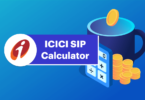Dummy accounts are widely popular with novice traders who want to practice and learn how to trade before trading with real money. Among the users of dummy accounts, you will find more experienced traders who choose to open demo accounts to test new strategies or practice new trading channels, such as investing in stock indices. This way, traders can learn about the market, but more importantly, they can learn about themselves as traders in the best trading account online.
What benefits can be obtained from trading using dummy accounts?
A dummy account allows novice traders to try trading with an account that looks like a real online trading account, like those used by traders. In demo accounts, users receive an amount of virtual money to get started and trade by buying and selling positions, for example, on the most stable and safe assets such as stocks.
As with real accounts, dummy accounts report market movements on screen to allow traders to decide whether to keep the position or liquidate it. At the end of the day, it will be possible to evaluate the actions taken, learn from them, and prepare to trade on a real account using their best trading account online.
It is important not only for dummy account users to practice but also to be able to retrospectively analyze their actions and learn from them, especially before venturing into trading on a real account. This is also important for the most experienced traders, who may want to practice in a simulated trading environment for any reason, such as checking at the end of the day if the operations you want to make are as beneficial as hoped.
That said, some dummy accounts do not use real-time updated information but operate with a 15-20 minute delay to prevent the competition from using the data.
Advantages and disadvantages of trial money
There are some risks in simulated trading that should not be underestimated. Some people advise against starting trading with a test account for several reasons. According to them, the main reason not to fake trading is the sense of euphoria it causes. Since real money is not used, traders can take risks that they would not normally be willing to take, thus increasing their earnings.
Losses, on the other hand, tend not to be taken seriously since, as mentioned, you don’t lose real money. There is also another drawback; since you operate with money that is not your own, you tend not to follow the market with the same consistency, reacting less immediately than when you operate with real money.
Simulated trading may sound simple, but there is one important thing to consider. Real trading involves a lot of emotions, which can be positive since trades are more followed and market-focused, but this can also have negative consequences.
In emotional trading, emotions take precedence over reason, and we tend to trade without doing research, thus ending up losing money. Such emotions do not generally characterize simulated trading on dummy accounts, precisely by its nature, but as long as the difference is kept in mind, the transition between demo and real trading can only be successful.
Once you understand how the platform works, time and practice will prepare you for the real market. However, we cannot fail to remember that a few hours of practice is not enough, and it could give that dangerous feeling of euphoria we talked about earlier.
Knowing how the platform works does not necessarily mean knowing how the market works, both on a macro scale and in small nuances. It is recommended to use the dummy account for a few days while reading relevant materials and then start trading with a fresh mind.
Finally, it should be emphasized that trading is not suitable for everyone. Many times people throw themselves into trading, only to end up in bitter disappointment, not to mention the significant loss of capital suffered. It is strongly recommended to open a dummy account to practice using your best trading account.






